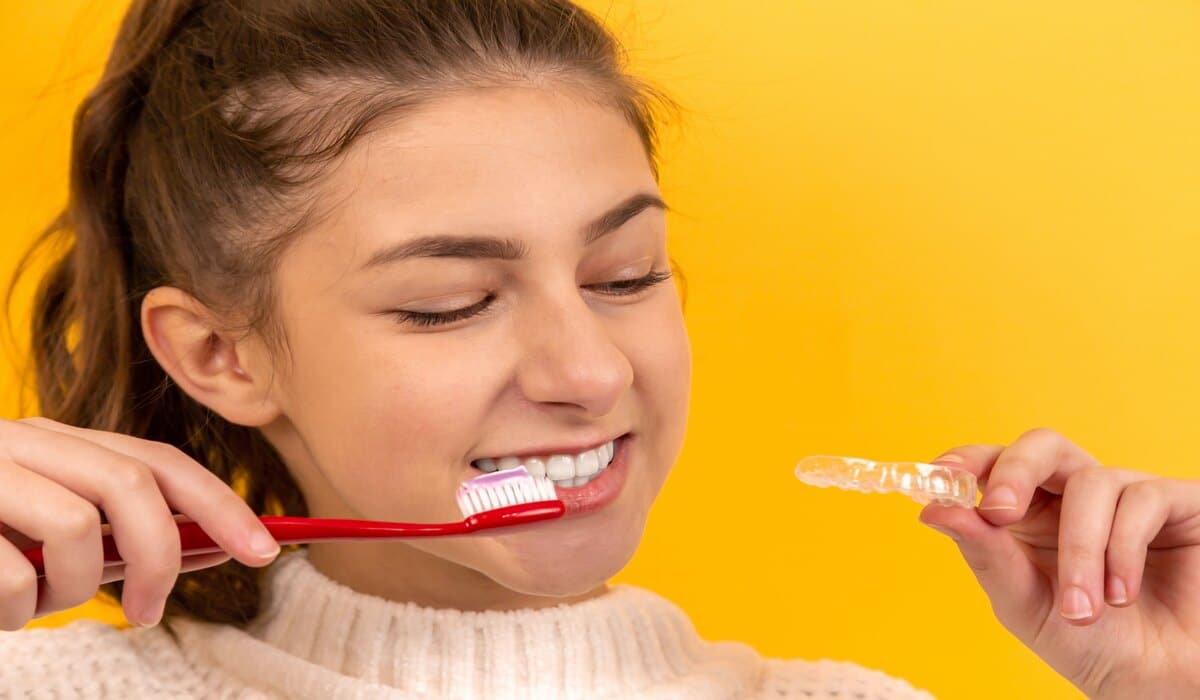Table of Contents
Most of us covet whiter teeth and a brighter smile, but how do we go about making this pipe dream a reality? From DIY solutions to whitening toothpastes, professional treatments, and the assortment of weird and wonderful remedies advertised online, teeth whitening is an industry all of its own.
And while many of the solutions can be effective when used regularly and consistently (and some of the more professional treatment options even translate to overnight and lasting results), there are others which we would consider to be a waste of time and money.
This article has been created with busy individuals in mind, helping you to identify the quickest and most effective solutions for brighter, whiter teeth. But first, what does teeth whitening actually seek to do?
How does teeth whitening work as a treatment?
Teeth whitening essentially involves the brightening of the teeth by removing surface stains through the process of bleaching. How this is achieved depends on the method of treatment used. Though the most effective utilises a laser. Which achieves the ideal results without causing damage to the enamel or surface of the teeth.
It’s important to recognise that veneers and crowns cannot whitened in the same way as natural teeth. Due to their composition and what they’re made of.
What is the best way to achieve long-lasting whiter teeth?
By far the most effective and efficient solution for whiter teeth is via a professional whitening treatment – with busy individuals particularly pleased to hear that a thorough whitening treatment takes a mere 60 minutes from start to finish.
The science behind effective teeth whitening requires effective cleaning and debris removal before a potent and dentist approved paste spread over the teeth, a mouthguard applied, and then an LED light shone on the teeth. This process repeated in 2-3 twenty or thirty minute bursts, culminating in a 60-minute treatment.
The results can last upwards of a year, provided you follow the right aftercare and maintenance advice – making professional treatment a long lasting investment of time and money.
Other effective solutions for teeth whitening
This is where we need to consider some of the more affordable and flexible solutions for those. Who don’t have time to schedule professional treatments. Who want to brighten their smile at home and at their own convenience.
Baking soda is one DIY solution which many consumers swear by, citing the connection between baking soda as an ingredient in their cupboard. Also, the baking soda which found in many toothpastes. Mixing a small amount of baking soda with water and scrubbing your teeth can help to whiten the teeth and remove surface stains over time.
Another option is tooth whitening pastes, though these are not necessarily completely safe and are nowhere near as effective as a professional treatment – as we go on to find out later in this piece.
As well as whitening products themselves. One of the biggest pieces of advice that we can share is to avoid food, drinks. Also, lifestyle habits which exacerbate staining and discolouration. Smoking, fizzy drinks, excess coffee, and some more acidic foods. All contribute towards stained teeth, and so limiting or controlling consumption. The way you consume these goods can help to ensure your teeth do not become more discoloured over time.
Teeth whitening products and solutions to avoid
One solution which you may see on blogs and teeth whitening articles for DIY consumers is the use of hydrogen peroxide – aka bleach. While there are definitive links between bleach and whitened teeth. It’s the side effects that we urge you to be aware of, with the connection between this ingredient and gum irritation, tooth sensitivity. Even cancer something which steers us away from the use of this bleach as a tooth whitening solution.
Though not in the same league where health is concerned. We also recommend avoiding teeth whitening toothpastes as marketed on high street shelves and online. This is because these products are more abrasive than standard toothpastes. So while they might scrub away some surface stains. They also damage and even remove the enamel which coats your teeth and protects them.
Finally, if a beauty salon offers you a teeth whitening treatment, know that this is illegal. Only dentists like Rank My Dentist legally allowed to offer teeth whitening as a service or visit https://www.rankmydentist.com/ to know more.
For more information on the teeth whitening treatments that your dentist offers, get in touch with them directly.
Photo by Diana Polekhina on Unsplash


